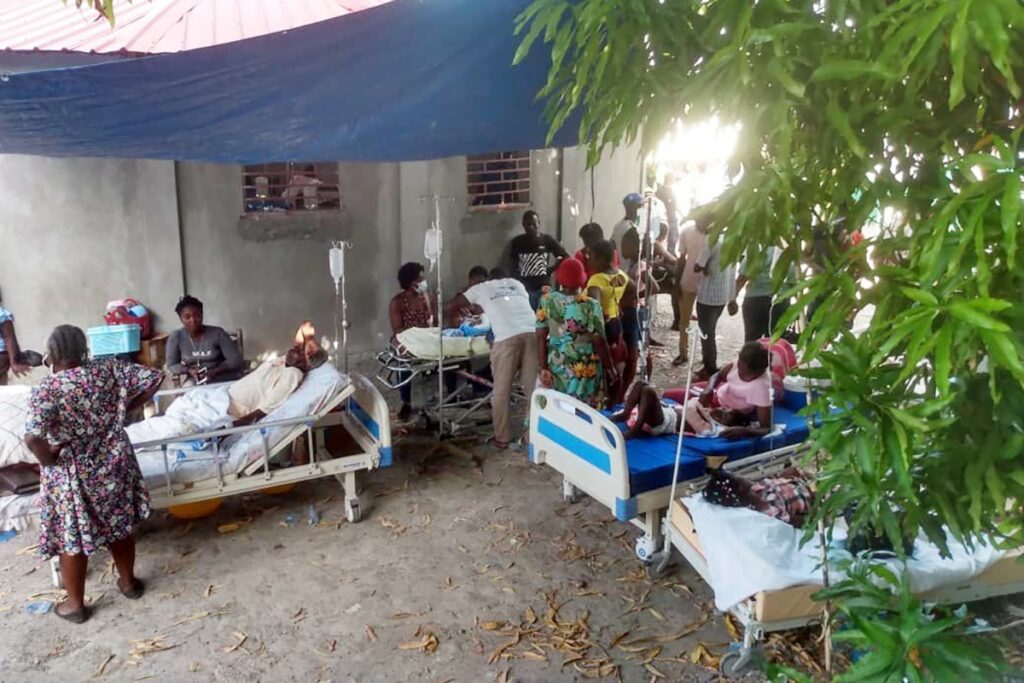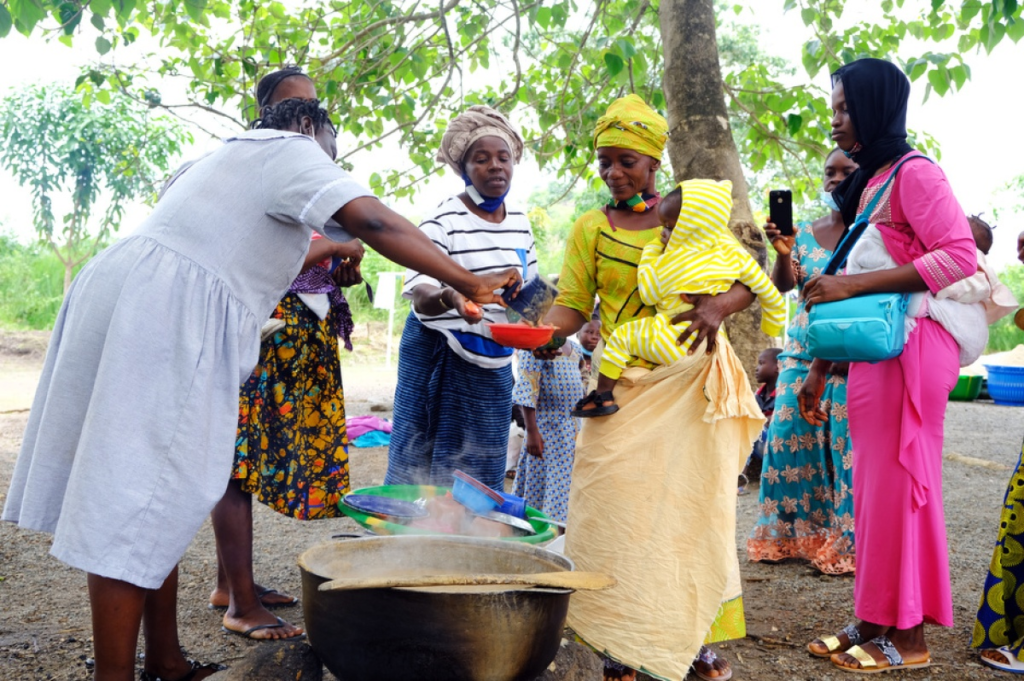Our Top Ten Stories of 2021

A year in review – PIH Canada’s top stories and moments
Posted on Dec 20, 2021

1. Tapestry 2030 Podcast – No Woman or Girl Left Behind
As part of the Ontario Council for International Cooperation Tapestry 2030 podcast series, Isata Dumbuya from PIH Sierra Leone, Basimenye Nhlema from PIH Malawi, and Ian Pinnell from PIH Canada discuss the collaborative “No Woman or Girl Left Behind” project, supported by Global Affairs Canada. Both Isata and Basimenye explore the progress of the project so far, the impact of COVID-19 on women and girls’ health, and the importance of PIH’s partnership and accompaniment approach to health systems strengthening. Read more and listen below.
2. PIH Breaks Ground on Maternal Center of Excellence in Sierra Leone
The morning of April 23 marked a turning point for women and their families in Kono District, Sierra Leone, as Partners In Health (PIH) and Sierra Leone’s Ministry of Health and Sanitation officially broke ground on the Maternal Center of Excellence (MCOE). Dedicated to women and children’s health, this state-of-the-art teaching hospital is fully equipped to save patients’ lives — including 163 beds, an oxygen plant, blood bank, intensive care unit, neonatal intensive care unit, surgical suite, outpatient clinic, and pharmacies. Specialized training programs will provide clinical education opportunities for the next generation of doctors, nurses, and health care workers. Read more and watch below.
3. Improved Water, Sanitation, and Hygiene Plans in Works for Health Facilities Across Haiti
PIH’s sister organization, Zanmi Lasante, has focused on improving access to water, sanitation, and hygiene (WASH) services within the health care facilities it supports and throughout neighboring communities across the Central Plateau and lower Artibonite. An assessment revealed need across 15 facilities, and the provision of access to WASH in health care facilities is an integral part of health systems. With these improvements, Zanmi Lasante clinicians and staff will be able to provide a better quality of care, reduce the risk of patient infections, and increase patients’ use of health services. Everyone has the right to improved sanitation. Read more.
4. PIH’s Five S’s: Essential Elements for Strong Health Systems
When we think of health system strengthening at Partners In Health (PIH), we always refer to five key elements: staff, stuff, space, systems, and social support. We call them the “five S’s” and use them to guide our work every day. Each element is equally important in providing high-quality care to our patients in the 11 countries where we work, responding to emergencies, and building and reinforcing strong, long-term health systems, in collaboration with government partners. Each “S” is essential; eliminating just one of them results in a weaker health system. Read more.
5. One Patient Becomes Many: Expanding HIV/TB Care in Sierra Leone
Hassan arrived at Lakka Government Hospital, Sierra Leone’s only dedicated tuberculosis facility, with a case of multidrug-resistant tuberculosis (MDR-TB) — the harder-to-cure, and therefore deadlier, form of the infectious disease whose yearly death toll has only recently been surpassed by COVID-19. As is common with many TB and MDR-TB patients, Hassan was also living with HIV, which he was born with. The co-infection proved difficult to treat, and PIHers around the globe united to bring the appropriate medication, Dolutegravir, into Sierra Leone. Within a month of the new course of treatment, Hassan’s health dramatically improved and this success has changed the course of TB treatment nationally. Read more.
6. Emergency Care Key to Earthquake Response in Haiti

PIH’s director of emergency and critical care discussed clinicians’ primary concerns following a 7.2-magnitude earthquake in Haiti, how they rapidly responded, and how such tragedies can have a lasting impact — including on those not immediately injured. Read more.
7. Research: Innovative Program Saves At-Risk Newborns in Rwanda
In Rwanda, “impinja ntizigapfe” captures a mother’s prayer — that no baby ever dies; the phrase inspired an innovative program intent on saving newborns’ lives. The successful program, All Babies Count, was launched by Inshuti Mu Buzima, as Partners In Health is known locally, and the Rwandan Ministry of Health in 2013, focused on reducing newborn deaths in Kayonza and Kirehe, two rural districts where neonatal mortality was high. Since, All Babies Count expanded to seven hospitals and 69 health centers across Rwanda and is serving as a model for maternal and neonatal care. Read more.
8. PIH Canada Celebrating 10 Years
As PIH Canada enters our second decade, it’s gratifying to look back and see how far we have come. We are humbled by PIH Canada’s supporters and partners in the past ten years, and the countless lives that have been transformed as a result of our collective effort. Read more about some of the ways we have put your generosity to work.
9. Responding to Malnutrition in Sierra Leone

Well into its second year, the moderate acute malnutrition program (MAM) provides support to hundreds of families across Kono, Sierra Leone each year. The program has proven prescient, as food insecurity and malnutrition have been on the rise throughout the COVID-19 pandemic; the virus’ ripple effects have, unsurprisingly, proven serious and long-lasting in the country’s context of extreme poverty, few formal safety nets, and already rising food prices. In the face of this mounting injustice, now, more than ever, equitable malnutrition care is essential. Read more.
10. On Human Rights Day, a Renewed Call for Vaccine Equity as a Human Right
A year after Canada administered its first doses of the COVID-19 vaccine, the outrageous implications of unjust supply and distribution policies driven by wealthy countries – Canada included – have never been more stark. Once again on Human Rights Day, we call on the Canadian government, and all governments, to endorse the TRIPS waiver and immediately support the demands of advocates and governments in low-income countries for scaled-up COVID-19 vaccine production and equitable distribution as a matter of fundamental human rights. Read more.



